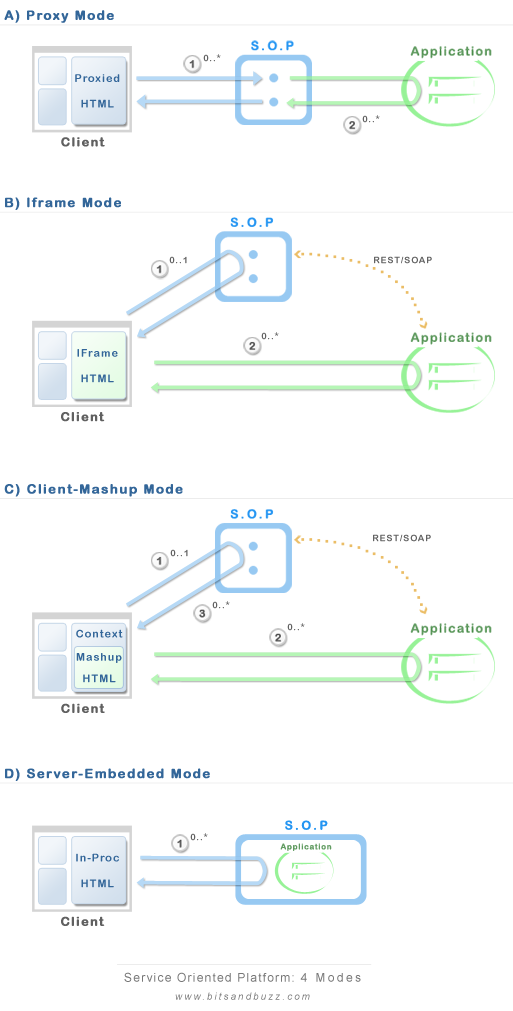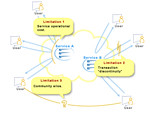 A few days ago a UK magazine posted a good article about Flock. As mentioned in the article, Flock is still in developer preview and therefore should be judged less by its bits quality and more by the idea it tries to convey. Flock’s vision of a more collaborative and event-driven Internet is probably undisputable. However, some of Flock’s premises have been subject to a flood of criticisms (e.g., Paul Kedrosky’s post, flocksucks.wordpress.com).
A few days ago a UK magazine posted a good article about Flock. As mentioned in the article, Flock is still in developer preview and therefore should be judged less by its bits quality and more by the idea it tries to convey. Flock’s vision of a more collaborative and event-driven Internet is probably undisputable. However, some of Flock’s premises have been subject to a flood of criticisms (e.g., Paul Kedrosky’s post, flocksucks.wordpress.com).
Most of these criticisms seem to be based on the fact that Flock tries to provide an alternative "Web browser" application rather than providing extensions to existing browsers (e.g., a Firefox extension). Lately, the launch of a great Firefox extension Performancing (see Steve Rubel and O.M. Malik quick profile), which offers one of the core Flock’s functionalities by allowing users to blog "in the context" of their browsing experience, has revived the discussion. In a response to these last complaints, Chris from Flock, supported by Bart (Flock’s CEO), issued a good post giving a little more context behind Flock’s vision and direction.
As mentioned by Michael Arrington of TechCrunch, Flock’s Buzz might have come a little bit too early for the Bits, which is always a very dangerous position to be in. Also, Flock’s first audience, the Mozilla tech savvy crowd, was probably not especially receptive to the idea of another browser. I personally am a big fan of Mozilla Firefox, and while I have tested Flock developer preview release, I went back to Firefox since I have all my extensions set up.
However, I deeply believe in Flock’s idea. As Chris mentioned, Flock might or might not be the answer, but the point is that users need much more than a traditional Web browser to make the "Everybody-to-Everybody" Internet vision a reality. This new "Internet Companion" could come from the evolution of an existing Web browser, from a set of extensions, or from another application altogether: the way it gets here is less important than the things it will allow people to do. Obviously, this assumes the goal is to allow the "rest of us" to participate on the Internet.
So, the question is not "to Flock or not to Flock", but rather to believe that the way we will interact with the Internet in couple years will be substantially different from what we do today.
Also, I have had the privilege of meeting the Flock team on many occasions, and it is always refreshing to see a passionate and dedicated team so focused on accomplishing its vision. I would not be surprised if future versions of Flock will surprise us. And I definitely need this new "Internet Companion" for my grandmother and sisters.
 Louis Gray wrote a nice post today
Louis Gray wrote a nice post today  Tagging has been a relatively popular, human-driven method for organically categorizing information on the Web. Users are now accustomed to tagging the content that they are publishing or bookmarking.
Tagging has been a relatively popular, human-driven method for organically categorizing information on the Web. Users are now accustomed to tagging the content that they are publishing or bookmarking. In the last few years, the technology industry has been particularly focused on Web developers, and the last couple of weeks have been a relatively good example of such attention. First, Adobe released its Adobe AIR and their Flex 3 products; Microsoft did a massive
In the last few years, the technology industry has been particularly focused on Web developers, and the last couple of weeks have been a relatively good example of such attention. First, Adobe released its Adobe AIR and their Flex 3 products; Microsoft did a massive 

 A few days ago a UK magazine posted a
A few days ago a UK magazine posted a